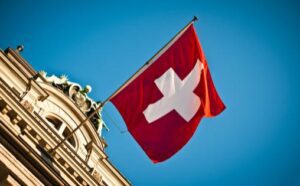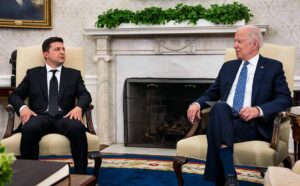
Ukraine in January-November this year, Ukraine reduced the export of pig iron in physical terms by 57.8% compared to the same period last year – up to 1 million 227.821 thousand tons.
According to statistics released by the State Customs Service (SCS), exports of pig iron in monetary terms fell by 59.7% to $602.691 million over the period.
In January-November 2022, Ukraine imported 40 tons of pig iron worth $23 thousand, while in 11M2021, it imported 172 tons of pig iron worth $202 thousand.
As reported, Ukraine in 2021 increased the export of pig iron in volume terms by 4.2% compared to 2020 – up to 3 million 235.772 thousand tons, iron exports in monetary terms increased by 78.1% to $ 1 billion 642.596 million. In this export was carried out mainly in the U.S. (53.61% of supplies in monetary terms), Italy (22.08%) and Turkey (9.74%).
In 2021, Ukraine imported 185 tons of cast iron worth $226 thousand from Germany (74.34%), Russia (20.35%) and Slovakia (5.31%), while in 2020, Ukraine imported 593 tons worth $417 thousand.

Ukraine in January-November this year, Ukraine decreased imports of aluminum ores and concentrate (bauxite) in volume terms by 79.8% over the same period last year – up to 945.396 thousand tons, in November imports were not carried out.
According to statistics released by the State Customs Service (SCS), during this period, imports of bauxite in monetary terms decreased by 77.5% – to $48.166 million.
Ukraine did not re-export bauxite in January-November 2022.
As reported, Ukraine in 2021 decreased imports of aluminum ore and concentrate (bauxite) in volume terms by 0.1% compared to 2020 – to 5 million 114.227 thousand tons. Imports of bauxite in monetary terms increased by 4.2% to $236.638 million.
Imports were carried out mainly from Guinea (59.33% of supplies in monetary terms), Brazil (21.33%) and Ghana (16.8%).
Ukraine in 2021 made re-export of bauxite in the amount of 277 tons worth $ 70 thousand to Belarus (48.57%), Poland (40%) and Russia (7.14%), while in 2020 was re-exported to Poland 255 tons of bauxite worth $ 41 thousand.
Bauxite is an aluminum ore used as a raw material for producing alumina, and from it, aluminum. They are also used as fluxes in iron and steel industry.
Bauxite is imported into Ukraine by the Nikolaev Alumina Refinery (NGR), which before the war was affiliated with the United Company (UC) Russian Aluminum (RusAl, RF). Bauxite is used to produce alumina.
“RusAl in Ukraine also previously owned a stake in the Zaporozhye Aluminum Plant (ZALK), which stopped producing primary aluminum and alumina.

14 December 2022, Multi Corporation’s managed shopping centres across Europe, including Forum Lviv in Lviv, have joined forces to raise money for Ukraine to purchase first-aid medical kits. The campaign is a cooperation with UNITED24, a platform launched by Ukrainian president Volodymyr Zelensky.
With the fundraising, Multi wants to help Ukrainians who are affected by the war. The fundraising campaign has started on 14 December and will run for three months.
The first aid medical kits – a necessity in the war-stricken zones of Ukraine and in high demand – cost approximately 110 euros. Customers and tenants of Multi managed shopping centres can contribute through Donorbox, an effective online tool to manage fundraising activities.
Donations from the campaign are transferred to the National Bank of Ukraine and allocated to the Ministry of Health, specifically for the purchase of these medical first-aid kits. UNITED24 ensures that the proceeds are allocated for the right purpose. UNITED24 is audited by Deloitte.
Multi Corporation manages more than 80 properties across Europe and Turkey. Thirteen of its employees work in Forum Lviv, in Ukraine and their safety is constantly at risk.
“For over a decade, Multi has been active in Ukraine. We want to support the people of Ukraine during these difficult times,” says Elmar Schoonbrood, Co-CEO of Multi Corporation. “We are keen to raise money for first-aid medical kits, since these are much needed at the moment.”
“The idea behind UNITED24 is simple: to unite the world around Ukraine. To bring us closer together to save our people, defend and rebuild our land,” says Yaroslava Gres, UNITED24 coordinator. “It allows one-click donations to Ukraine from any country. Why is this so important? Because Ukraine knows best what it needs. Because Ukraine can deliver aid directly to where it is needed. Because only the government can rebuild cities or roads in Ukraine to help people come back home.”
UNITED24 is a fundraising platform, initiated by the President of Ukraine, Volodymyr Zelenskyy. It is the central venue for charitable donations in support of Ukraine. During the first 5 months of operation, UNITED24 collected more than 200 million dollars from citizens of 110 countries around the world. Among UNITED24 ambassadors are famous athletes – Andriy Shevchenko, Elina Svitolina and Oleksandr Usyk, creative director of Balenciaga – Demna, American actors – Liev Schreiber and Mark Hamill, music band Imagine Dragons, singer and actress Barbra Streisand.
About Multi
Multi Corporation is the leading pan-European platform for integrated real estate management services. Since its foundation in 1982, the company has completed over 200 real estate projects with a total GLA of over 5 million sqm, an asset value of nearly 13 billion Euros and has received over 200 industry awards from its peers. Multi currently manages over 80 properties across Europe and welcomes over 400 million customers annually, spending an estimated €4 billion across over 7,200 stores, restaurants, and leisure facilities. Multi offers a full spectrum of services, including active asset and property management, operations, redevelopment and refurbishment, leasing, advisory, legal and compliance. Multi’s in-depth knowledge of retailers, investors, visitors, and local markets provides owners of real estate an integrated and independent platform to protect and drive asset value at every phase of the property’s lifecycle. Multi’s broad financial, commercial, and technical expertise has enabled us to outperform the industry in terms of occupancy, net rental income and state-of-the-art marketing over the years. Multi actively manages assets in 13 countries. The company’s headquarters are in The Netherlands, and has offices in Belgium, Germany, Hungary, Italy, Latvia, Poland, Portugal, Slovakia, Spain, Switzerland, Turkey and Ukraine. Visit www.multi.eu for more information and to download the corporate profile.

Switzerland followed the EU in imposing new sanctions against Russia, with 141 individuals and 49 legal entities added to the “black lists,” the Swiss government said in a statement.
“Switzerland, by amending the sanctions lists on December 21, thus joined the EU measures,” the press release said.
“Switzerland is amending the sanctions regime as part of the measures that the EU adopted in connection with the supply of Iranian drones to Russia and the continuing alarming situation in Ukraine,” the document specified.
The sanctions will take effect at 6 p.m. local time.
According to the statement, on December 16, the EU also imposed a ban on exports to Russia of a number of other categories of goods and services, and the Swiss government, in turn, will study these measures.
On December 16, the EU Council approved the ninth package of sanctions against Russia, which includes restrictions against the mining and energy sectors and a ban on exports of space industry goods and drones.
Among other things, the EU also added 168 more entities related to the defense industry of Russia to its “black lists. In addition, the ninth EU sanctions package against Russia included 144 individuals, including high-ranking Russian officials, MPs, military personnel and artists from Russia.

Ukraine in January-November this year, Ukraine has reduced imports of manganese ore and concentrate in kind by 64.6% compared to the same period last year – up to 135.070 thousand tons.
According to statistics released by the State Customs Service (SCS), in monetary terms, imports of manganese ore and concentrate fell by 62.7% to $17.978 million for the period.
In August-November, there were almost no imports of manganese ore.
For eleven months of 2022, Ukraine did not supply manganese ore and concentrate for exports.
As reported, Ukraine in 2021 decreased imports of manganese ore and concentrate in volume terms by 26.8% compared to 2020 – to 425.279 thousand tons. In monetary terms, imports of manganese ore and concentrate during this period decreased by 29.6% – to $53.917 million. At the same time, the main imports came from Ghana (99.87% of supplies in monetary terms), Brazil (0.07%) and Belgium (0.05%).
Last year, Ukraine supplied 770 tons of manganese ore and concentrate to Poland (94.38%) and Russia (5.62%) for $89 thousand, while in 2020, Ukraine exported 69.303 tons of manganese ore and concentrate worth $10.819 million.
In Ukraine, the Pokrovsky (formerly Ordzhonikidze) and Marganetsky mining and processing plants (both in Dnepropetrovsk region) extract and process manganese ore.
Consumers of manganese ore are ferroalloy plants.

U.S. President Joe Biden will greet Ukrainian President Volodymyr Zelensky at the White House on Wednesday, December 21, at 21.00 Kyiv time.
The relevant information was published in the public agenda of the President of the United States.
At 21.30 Kyiv time, President Biden will host a bilateral meeting with Ukrainian President Zelensky. At 23.30, Biden and Zelensky are expected to hold a joint press conference.